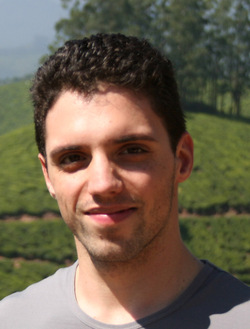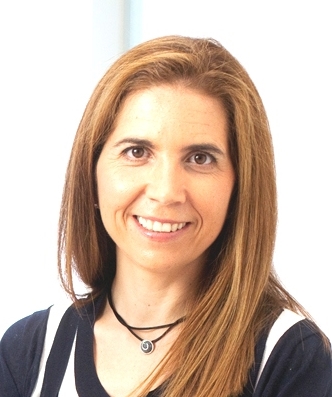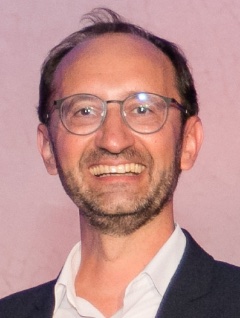
| June 25, 2023 |
| Proceedings available |
June 21, 2023 |
| Handbook program and DC book of abstracts published |
June 9, 2023 |
| Program published |
May 16, 2023 |
| Preliminary Program published |
Mar 25, 2023 |
| Registration is open |
Feb 13, 2023 |
| Submission deadline extended to March 5, 2023 (hard deadline) |
Dic 23, 2022 |
| The awarded papers will be invited to prepare extended versions for Pattern Recognition Letters |
Dic 22, 2022 |
| A short list of presented papers will be invited to submit extended versions for possible publication in Pattern Analysis and Applications |
October 21, 2022 |
| IAPR endorsement approved |
AI has made rapid progress as measured by benchmark dataset performance. In this talk, I will argue that distribution shift between training and deployment is very difficult to avoid in practice, and that its detrimental impact is often an underlying cause of practical system failures. As such distribution shift is one of the key reasons why real-world pattern recognition impact has lagged benchmark performance. I will introduce a variety of paradigms and tools that the community is developing to tackle this challenge and discuss where they having success, where they are failing, where they are insufficiently imaginative, and what we can do better as a community to facilitate progress towards more robust AI.
Timothy Hospedales is a Full Professor of Artificial Intelligence at the University of Edinburgh, where he heads the Machine Intelligence Research group, and Programme Director for Machine Learning and Data Intelligence at Samsung AI Centre Cambridge. He has worked extensively on learning with limited data, with applications in computer vision, pattern recognition, and beyond; and received funding from the European Commission and UK Research Councils. He has published numerous papers in top venues such as CVPR, NeurIPS, ICML, ICLR, AAAI, and PAMI, several of which have won best paper prizes and nominations; and recently co-authored a book on deep domain adaptation in computer vision. He is/was an Associate Editor of IEEE Transaction on Pattern Analysis and Machine Intelligence, Program Chair of BMVC, Associate Program Chair of AAAI, ELLIS fellow, and Alan Turing Institute fellow.
Data Science against COVID-19 is the work of a multi-disciplinary team of 20+ volunteer scientists between March of 2020 and April of 2022, working very closely with the Presidency of the Valencian Government to support their decision-making during the COVID-19 pandemic in Spain. In my talk, I will describe our work and share the lessons learned in this very special initiative of collaboration between the civil society at large (through a citizen survey), the scientific community (through this taskforce) and a public administration (through our collaboration with the Presidency of the Valencian Government).
Nuria Oliver is a computer scientist. She is the director of the ELLIS unit Alicante Foundation, Chief Scientific Adviser at the Vodafone Institute, and Chief Data Scientist at DataPopAlliance. She is also cofounder and vice-president of ELLIS, The European Laboratory for Learning and Intelligent Systems. She holds a PhD from the Media Lab at MIT and is an IEEE fellow, ACM Distinguished Scientist and Fellow, EurAI Fellow and elected permanent member of the Royal Academy of Engineering in Spain. She is one of the most cited female computer scientists in Spain, with her research having been cited by more than 23,000 publications. She is well known for her work in computational models of human behavior, human computer-interaction, mobile computing and big data for social good.
AI has tremendous potential to achieve sustainable development goals in the Earth sciences. In this talk, I will discuss how AI can improve environmental data collection and analysis, reduce waste and pollution, improve weather and climate forecasting, and develop more efficient renewable energy sources. Additionally, I will show how AI can positively impact climate science and natural resource management, from monitoring crops, forests, and oceans to detecting, characterizing and interpreting extreme events, such as droughts and heatwaves, in massive Earth data. A full AI agenda will be introduced based on hybrid machine learning modeling, explainability, and causal inference. Finally, I will discuss the challenges and ethical considerations associated with AI for sustainability, where interdisciplinary education and diversity will be key. This talk will provide an overview of the potential of AI for achieving a more sustainable future and provide insight into the innovative possibilities of AI for sustainability in the Earth sciences.
Gustau Camps-Valls is a Physicist and Full Professor in Electrical Engineering in the Universitat de València, Spain, where lectures on machine learning, remote sensing and signal processing. He is the head of the Image and Signal Processing (ISP) group, an interdisciplinary group of 40 researchers working at the intersection of AI for Earth and Climate sciences. Prof. Camps-Valls published over 250+ peer-reviewed international journal papers, 350+ international conference papers, 25 book chapters, and 5 international books on remote sensing, image processing and machine learning. He has an h-index of 82 with 31000+ citations in Google Scholar. He was listed as a Highly Cited Researcher in 2011, 2021 and 2022; currently has 13 «Highly Cited Papers» and 1 «Hot Paper», Thomson Reuters ScienceWatch identified his activities as a Fast Moving Front research (2011) and the most-cited paper in the area of Engineering in 2011, received the Google Classic paper award (2019), and Stanford Metrics includes him in the top 2% most cited researchers of 2017-2020. He publishes in both technical and scientific journals, from IEEE and PLOS One to Nature, Nature Communications, Science Advances, and PNAS. He has been Program Committee member of international conferences (IEEE, SPIE, EGU, AGU), and Technical Program Chair at IEEE IGARSS 2018 (2400+ attendees) and general at AISTATS 2022. He served in technical committees of the IEEE GRSS & IEEE SPS, as Associate Editor of 5 top IEEE journals, and in the prestigious IEEE Distinguished Lecturer program of the GRSS (2017-2019) to promote «AI in Earth sciences» globally. He has given 100+ talks, keynote speaker in 10+ conferences, and (co)advised 10+ PhD theses. He coordinated/participated in 60+ research projects, involving industry and academia at national and European levels. He assisted the aerospace industry in Advisory Boards; Fellow Consultant of the ESA PhiLab (2019) and member of the EUMETSAT MTG-IRS Science Team. He is compromised with open source/access in Science, and is habitual panel evaluator for H2020 (ERC, FET), NSF, China and Swiss Science Foundations. He coordinates the ‘Machine Learning for Earth and Climate Sciences' research program of ELLIS, the top network of excellence on AI in Europe. He was elevated to IEEE Fellow member (2018) in two Societies (Geosciences and Signal Processing) and to ELLIS Fellow (2019). Prof. Camps-Valls is the only researcher receiving two European Research Council (ERC) grants in two different areas: an ERC Consolidator (2015, Computer Science) and ERC Synergy (2019, Physical Sciences) grants to advance AI for Earth and Climate Sciences. In 2021 he became a Member of the ESSC panel part of the European Science Foundation (ESF), and in 2022 was elevated to Fellow of the European Academy of Sciences (EurASc), Fellow of the Academia Europeae (AE), and Fellow of Asia-Pacific Artificial Intelligence Association (AAIA).





